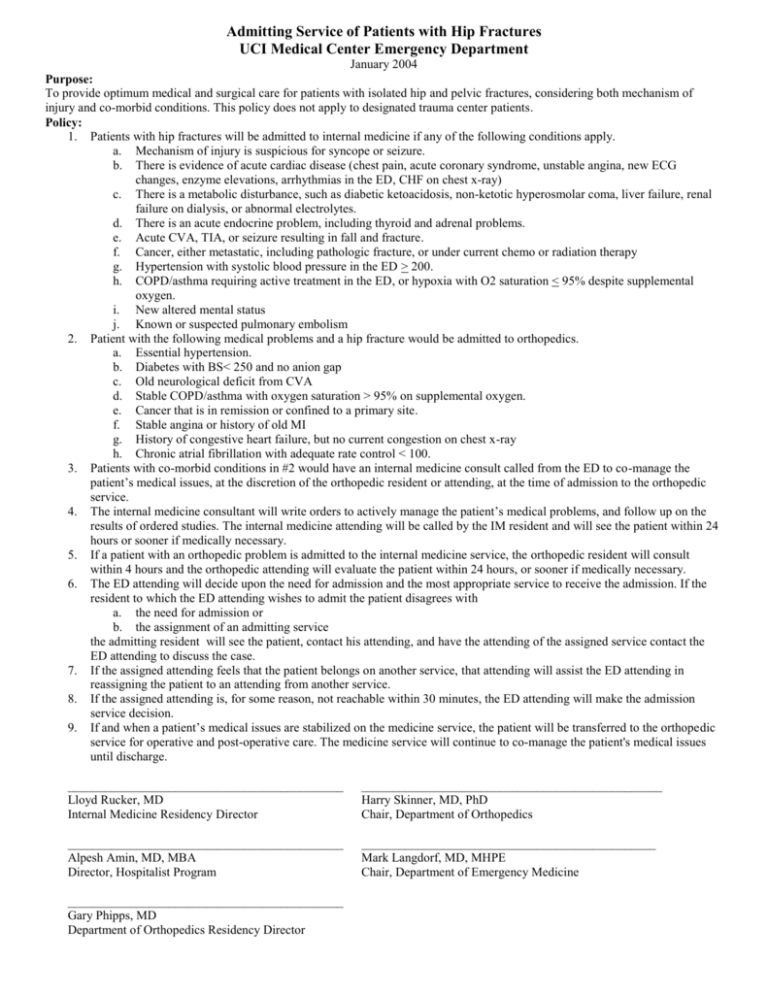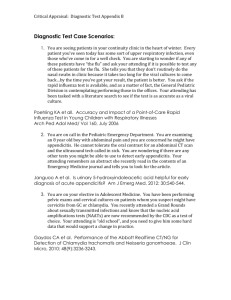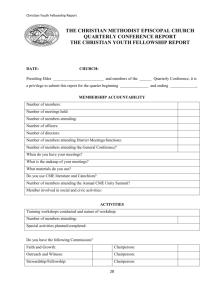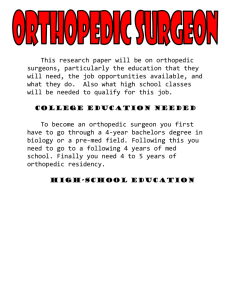Orthopedic Admissions - Department of Medicine
advertisement

Admitting Service of Patients with Hip Fractures UCI Medical Center Emergency Department January 2004 Purpose: To provide optimum medical and surgical care for patients with isolated hip and pelvic fractures, considering both mechanism of injury and co-morbid conditions. This policy does not apply to designated trauma center patients. Policy: 1. Patients with hip fractures will be admitted to internal medicine if any of the following conditions apply. a. Mechanism of injury is suspicious for syncope or seizure. b. There is evidence of acute cardiac disease (chest pain, acute coronary syndrome, unstable angina, new ECG changes, enzyme elevations, arrhythmias in the ED, CHF on chest x-ray) c. There is a metabolic disturbance, such as diabetic ketoacidosis, non-ketotic hyperosmolar coma, liver failure, renal failure on dialysis, or abnormal electrolytes. d. There is an acute endocrine problem, including thyroid and adrenal problems. e. Acute CVA, TIA, or seizure resulting in fall and fracture. f. Cancer, either metastatic, including pathologic fracture, or under current chemo or radiation therapy g. Hypertension with systolic blood pressure in the ED > 200. h. COPD/asthma requiring active treatment in the ED, or hypoxia with O2 saturation < 95% despite supplemental oxygen. i. New altered mental status j. Known or suspected pulmonary embolism 2. Patient with the following medical problems and a hip fracture would be admitted to orthopedics. a. Essential hypertension. b. Diabetes with BS< 250 and no anion gap c. Old neurological deficit from CVA d. Stable COPD/asthma with oxygen saturation > 95% on supplemental oxygen. e. Cancer that is in remission or confined to a primary site. f. Stable angina or history of old MI g. History of congestive heart failure, but no current congestion on chest x-ray h. Chronic atrial fibrillation with adequate rate control < 100. 3. Patients with co-morbid conditions in #2 would have an internal medicine consult called from the ED to co-manage the patient’s medical issues, at the discretion of the orthopedic resident or attending, at the time of admission to the orthopedic service. 4. The internal medicine consultant will write orders to actively manage the patient’s medical problems, and follow up on the results of ordered studies. The internal medicine attending will be called by the IM resident and will see the patient within 24 hours or sooner if medically necessary. 5. If a patient with an orthopedic problem is admitted to the internal medicine service, the orthopedic resident will consult within 4 hours and the orthopedic attending will evaluate the patient within 24 hours, or sooner if medically necessary. 6. The ED attending will decide upon the need for admission and the most appropriate service to receive the admission. If the resident to which the ED attending wishes to admit the patient disagrees with a. the need for admission or b. the assignment of an admitting service the admitting resident will see the patient, contact his attending, and have the attending of the assigned service contact the ED attending to discuss the case. 7. If the assigned attending feels that the patient belongs on another service, that attending will assist the ED attending in reassigning the patient to an attending from another service. 8. If the assigned attending is, for some reason, not reachable within 30 minutes, the ED attending will make the admission service decision. 9. If and when a patient’s medical issues are stabilized on the medicine service, the patient will be transferred to the orthopedic service for operative and post-operative care. The medicine service will continue to co-manage the patient's medical issues until discharge. ____________________________________________ Lloyd Rucker, MD Internal Medicine Residency Director ________________________________________________ Harry Skinner, MD, PhD Chair, Department of Orthopedics ____________________________________________ Alpesh Amin, MD, MBA Director, Hospitalist Program _______________________________________________ Mark Langdorf, MD, MHPE Chair, Department of Emergency Medicine ____________________________________________ Gary Phipps, MD Department of Orthopedics Residency Director








